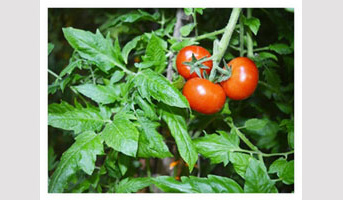Seminar Dr. Saloni Mathur
Insights into non-coding RNAs in heat stress - Thursday 27th June, 2024 11:00 am
Heat stress (HS) poses a major threat to horticulturally important crops like tomato. The mandate of the laboratory is to understand the role of post-transcriptional gene regulation during HS in tomato by evaluating two classes of molecular regulators, the non-coding RNAs viz. microRNAs (miRNAs) and long non-coding RNAs (lncRNAs) as well as alternative-splicing in HSFs (heat stress transcription factors). HSFs are mediators of signal transduction chain regulating activation of several genes, triggering an intricate transcriptional network. Similarly, miRNAs and lncRNAs regulate various aspects of plant growth and development including stress response. Dr. Saloni Mathur et al. are looking at how HS-response is regulated by the interplay of non-coding RNAs and HSFs. To dissect this interaction in tomato, HSFs and heat-responsive miRNome were identified. Transcriptional control of heat-responsive miRNAs having heat stress element (HSE) cis-elements in their promoters showed HSF binding as homo-/heteromeric forms. Interestingly, different HSFs showed specific binding with different promoters belonging to members of the same miRNA family, like MIR169 and MIR172 families, which were characterized in-depth. New functional MIR loci were confirmed in tomato that showed different degree of heat-inducibility, some were also significantly differentially-regulated in other abiotic stresses, and showed contrasting behavior in meiotic/post-meiotic inflorescence stages in heat-tolerant and -sensitive tomato cultivars. Novel MIR targets have also been validated in the lab. It was shown that post-transcriptional cleavage of NF-YA by elevated miR169 levels results in alleviating the repression of HS effectors HSFA3a and HSFA7a/b in tomato and Arabidopsis. These HSFs feedback into the HSF:MIR169:NF-YA loop to regulate HS response. Moreover, we have established miRNA-mediated HSF transcript cleavage in one HSF that also exhibits alternative splicing whereby the miRNA binding site is lost in the variants. These isoforms antagonistically regulate the transcription of its cognate heat inducible antisense lncRNA.
Dr. Saloni Mathur, National Institute of Plant Genome Research, New Delhi, India
Invitation : Jaishri-Rubina Das et Annie Marion-Poll, contact, "Germination Physiology" PHYGERM team
Seminar in connection with the research developed at the Institute Jean-Pierre Bourgin for Plant Sciences.
Dr. Saloni Mathur, National Institute of Plant Genome Research, New Delhi, India
Invitation : Jaishri-Rubina Das et Annie Marion-Poll, contact, "Germination Physiology" PHYGERM team
Seminar in connection with the research developed at the Institute Jean-Pierre Bourgin for Plant Sciences.
Back
